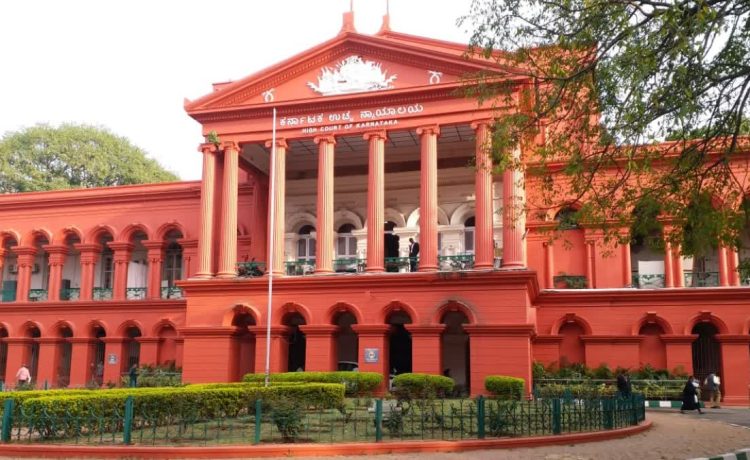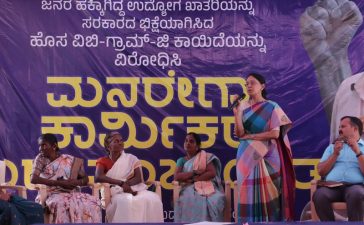Karnataka High Court Fines Chitradurga Nirmiti Kendra ₹50,000 for Withholding RTI Information
Court Affirms Nirmiti Kendra is a Public Authority Under RTI Act
Bengaluru, August 13, 2025 – The Karnataka High Court has imposed a penalty of ₹50,000 on the Chitradurga district Nirmiti Kendra for refusing to provide information sought under the Right to Information (RTI) Act. The court also clarified that the organisation qualifies as a public authority under the provisions of the RTI Act.
The order was issued by Justice Suraj Govindaraj while hearing a petition filed by the Project Director of Chitradurga Nirmiti Kendra, challenging an earlier directive from the State Information Commission. The Commission had ordered the centre to provide the requested details and imposed a ₹25,000 fine for non-compliance.
Court’s Reasoning
Justice Govindaraj’s bench cited Section 2(h) of the RTI Act, which defines a public authority as any body constituted by government order and receiving direct or indirect government funding.
The court noted that Nirmiti Kendra is not only financially supported by the government but is also under its administrative control.
“The organisation’s executive committee includes government secretaries and engineers, and its daily operations are managed by IAS and KAS officers. It receives funding from HUDCO and implements public works considered as government projects,” the bench observed.
The court rejected the Kendra’s claim that it was not a public authority, stating that such a stand from government officers could not be justified.
“Any attempt to evade transparency undermines public trust,” the bench remarked, directing the penalty amount to be deposited with the Karnataka State Legal Services Authority.
Background of the Case
The dispute began when H.R. Thimmaiah, President of Bharat Krishik Samaj in Hiriyur, Chitradurga district, sought financial details related to the Nirmiti Kendra under RTI. The centre refused, claiming it was not bound by the RTI Act.
Thimmaiah approached the Karnataka State Information Commission, which ruled in his favour, ordered the information to be disclosed, and fined the Kendra ₹25,000. The Kendra challenged this order in the High Court.
Arguments from Both Sides
Counsel for the Nirmiti Kendra argued that it was an independent entity and did not fall under the definition of a public authority, thereby exempting it from RTI obligations.
Thimmaiah’s legal team countered that the organisation was established through a government order, funded by HUDCO, and executed programmes recommended by the Department of Rural Development and Panchayat Raj.
“Given its structure, funding, and control, Nirmiti Kendra is undeniably a public authority,” the counsel stated.
Implications of the Verdict
The ruling reinforces the principle that any government-backed and controlled institution is accountable under the RTI Act, ensuring transparency in public works and expenditure.
By upholding the Information Commission’s stance and increasing the fine, the court has sent a clear message against attempts to sidestep the law.
Key Quotes
-
Justice Suraj Govindaraj (High Court)
“Any attempt to evade transparency undermines public trust.”
-
High Court Bench Observation
“A government-backed body, funded and controlled by public officials, cannot claim exemption from the RTI Act.”
-
H.R. Thimmaiah’s Counsel
“Nirmiti Kendra operates entirely under government order, with public funds — it is unquestionably a public authority.”
-
Court’s Warning
“Government officers are not expected to take a stand against transparency in public works.”
![]()











